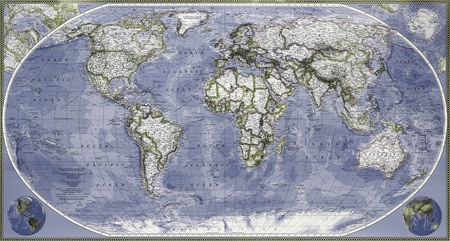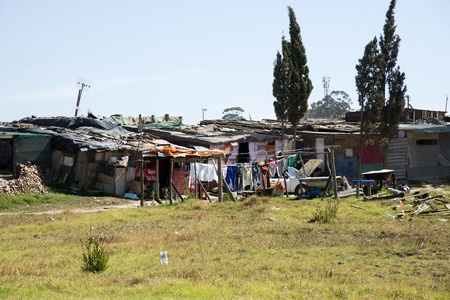I continue to carry out development assistance missions, and I recently came across this article written thirteen years ago. Little has changed since then, except for an increased withdrawal of countries—and individuals—into themselves. Global poverty and inequality persist. I am republishing it here to fuel our shared reflection and to question our collective responsibility in the face of this situation.
A succession of crises over the past thirty years
For three decades, crises have been multiplying. They are the direct consequence of two combined factors: global population growth And an unsustainable development modelThe 2008 financial crisis, which began in the United States, is a prime example. It affected access to credit and economic activity, and revealed the instability of the global financial system.
These successive crises have one merit: they have contributed to a awareness of the fragility of an economy based on speculative bubbles. But their social consequences are profound, especially when they combine with other major crises, as in 2008, where the financial collapse coincided with a triple structural crisis: ecological, energetic and food.
A triple structural crisis
Ecological crisis
It's not new. Reduction in biodiversity, water and air pollution, climate change: these phenomena are now tangible and visible. Natural disasters are on the rise, a sign of a system out of balance.
Energy crisis
Long predicted, this crisis materialized in the "3rd oil shock" of 2008, due in part to growing demand from emerging countries (India, China), the scarcity of deposits and the rise in operating costs. This price increase hits the most vulnerable hard, accentuating territorial and social inequalities, particularly in rural and peri-urban areas. It calls for a urgent relocation of activities.
Food crisis
This crisis, also announced, results from population growth, land degradation, desertification and the excessive use of crops for agrofuels. The result: food riots are reappearing, climate refugees are multiplying, and the global oil-based economic system is reaching its limits.
Poor countries are the hardest hit, with increasingly difficult access to water, food, and healthcare. Their already fragile democracies are threatened.
An unstable geopolitical context
Adding to this systemic crisis has been a global geopolitical upheaval since the fall of the Berlin Wall. Three major developments are worth noting:
The passage of a North–South axis to a East–West axis in global trade,
The rise of extremism, fueled by collective fears,
The emergence of transnational companies with growing power.
A changing multipolar world
Decades of development aid have not reduced inequality. Emerging countries (China, India, Gulf countries, Brazil, etc.) now have significant financial resources and are investing massively in poor countries. In doing so, they are gaining international recognition previously reserved for former colonial powers. This is redefining geopolitical alliances.
But in developed countries too, inequalities are widening. The rising cost of energy is straining household budgets and exacerbating social disparities.
A crisis of meaning and faith
Faced with these upheavals, human beings seek meaning. In the past, religion offered hope. Today, the legitimacy of the great monotheistic religions is crumbling in a world marked by individualization and instantaneous communication.
Two trends are emerging:
On the one hand, individuals construct a personal faith "à la carte", mixing spiritualities, ideologies, and the quest for identity.
On the other hand, others take refuge in groups that promise a better world... often at the cost of violence and the rejection of an enemy.
Transnational corporations: the new masters of the game
Multinationals, now responsible for 70 % of global trade, largely escape the control of States. Their objective is the profit maximization, even if it means exploiting cheap labor and maintaining corruption.
National politics are too divided, too focused on the pursuit of power, to impose a coherent global regulation. Faced with this omnipotence, the levers of action are politicians and humans, more than economical.
Towards a paradigm shift
These crises call for a profound transformation: a silent revolution, a new worldview.
The development model inherited from the industrial revolutions — based on the unlimited exploitation of natural resources — has become obsolete. It must give way to a model:
Focused on the individual responsibility,
Based on network logic rather than excessive centralization,
Where the knowledge, creativity and innovation take precedence over simple material growth.
In conclusion: from crisis to opportunity
Far from alarmist speeches, it is a question of seeing in these upheavals an opportunity to rehumanize the worldBuilding a new development model is a exciting adventure in which millions of citizens are already participating.
An open and supportive knowledge society is possible. The new world is emerging before our eyes, without the old one being completely erased yet. Hence the tensions, the resistance, the conflicts.
But from this friction also arises a new energy, which calls us to more creativity, solidarity and audacity.


